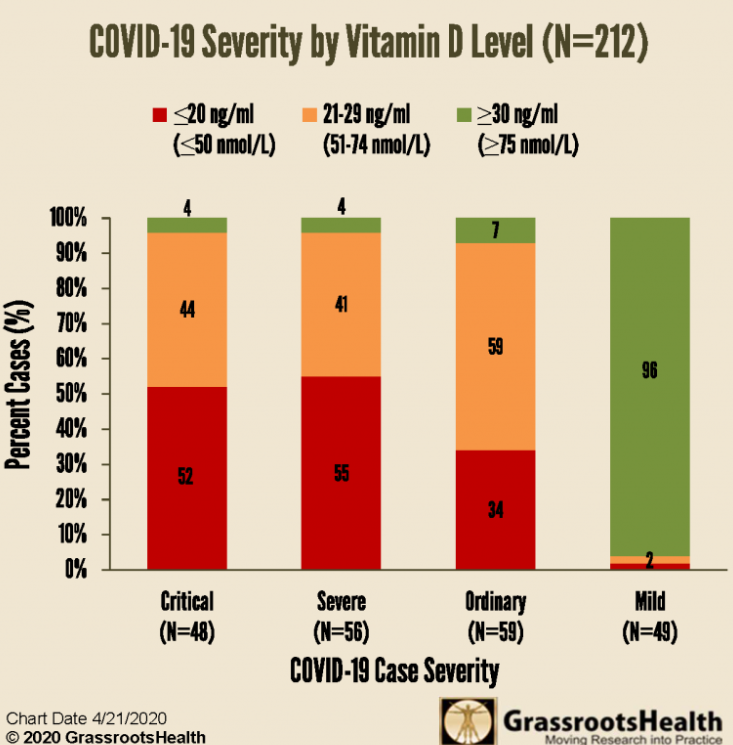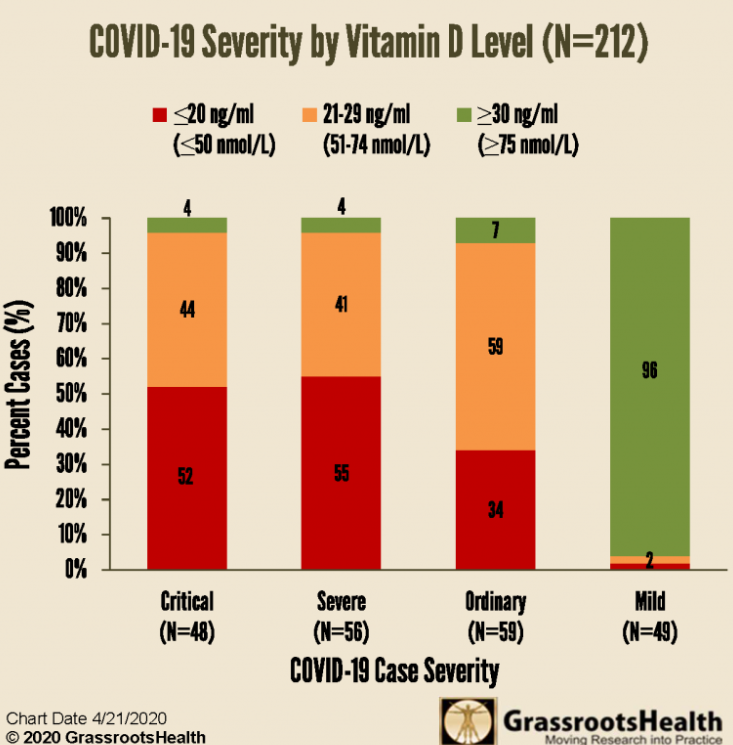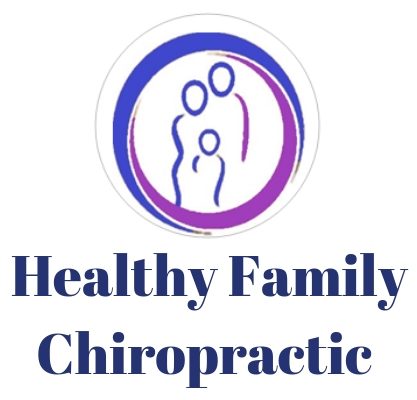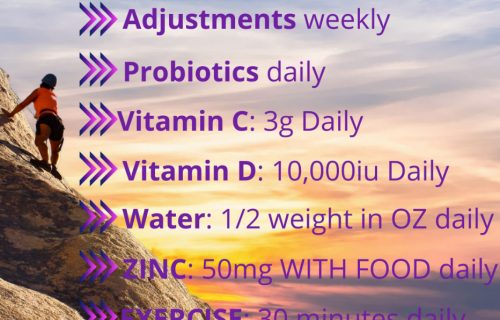
Data on COVID-19 & Vitamin D Levels
Let’s look at some of the first data to be published on COVID-19 severity and Vitamin D levels. *Grassroots Health is the sponsor of this data.
I’ve stated this through my career as a chiropractor – Vitamin D is essential and necessary to have to help maintain a healthy immune response.
Grassroots Health presented data from 212 COVID-19 patients who had been hospitalized in three separate hospitals in Southern Asia. This is the first published data comparing the severity of symptoms to vitamin D serum levels.
Cases were all confirmed for COVID-19 and were grouped as follows:
- Mild – presenting with mild clinical symptoms and no diagnosis of pneumonia
- Ordinary – presenting with fever, respiratory symptoms, and a confirmed diagnosis of pneumonia
- Severe – cases with hypoxia and respiratory distress
- Critical – cases with respiratory failure requiring intensive care
Vitamin D levels were grouped as follows:
- Normal – vitamin D level of 30 ng/ml (75 nmol/L) or above
- Insufficient – vitamin D level between 21-29 ng/ml (51-74 nmol/L)
- Deficient – vitamin D level below 20 ng/ml (50 nmol/L)
The findings concluded that of all the 212 cases was 24ng/ml vitamin D average.
Of all COVID-19 cases
- 49 (23%) cases were categorized as mild, with an average vitamin D level of 31 ng/ml (78 nmol/L)
- 59 (28%) were categorized as ordinary, with an average vitamin D level of 27 ng/ml (68 nmol/L)
- 56 (26%) were categorized as severe, with an average vitamin D level of 21 ng/ml (53 nmol/L)
- 48 (23%) were critical, with an average vitamin D level of 17 ng/ml (43 nmol/L)
- 86% of all cases among patients with normal vitamin D levels were mild, while 73% of cases among patients with vitamin D deficiency were severe or critical
- For each standard deviation increase in vitamin D level, the odds of having a mild case compared to a severe case were 7.94 times more, and the odds of having a mild case compared to a critical case were 19.61 times more
- All outcomes were statistically significant

This gives us insight on the evidence that Vitamin D supplementation could reduce risk of the flu, and Covid-19 infections/deaths.
Now let’s talk Vitamin D
Taking the right amount of Vitamin D gives your immune system the nutrients and strength it needs to support you and protect you against unnecessary diseases. Dr. Jen’s edit for this article is as follows: The target Vitamin D level for optimal health is 65-70, as you can see in the article above–their target levels are quite old and very low for optimal health.
Ways to up your Vitamin D levels:
- Be in the sunlight
- Be outdoors
- Eat fatty fish, mushrooms, egg yolks, and beef liver.
- Take supplements (see our approved supplements here)
If you have any questions about how you can test for Vitamin D, give us a call at 623-878-1133. We would be happy to help support you through your health journey!



